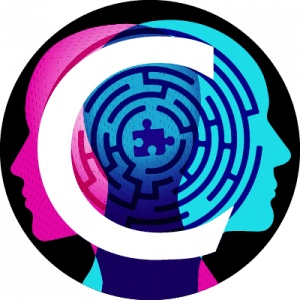REFERENCE: F04023-2021-21
Applications are invited for a tenure track faculty position at the rank of Assistant Professor in the Division of BioMedical Sciences, Faculty of Medicine, Memorial University of Newfoundland and Labrador.
All candidates whose training and research interests are strongly focused on cardiovascular or renal systems are encouraged to apply. The successful applicant will be expected to develop an active, independent, and externally funded research program in an area of Cardiovascular and/or Renal Sciences. The successful candidate’s research program will contrast, complement, and/or contribute to existing strengths in the Cardiovascular and Renal Sciences group. Applicants whose research interests logically intersect with other Divisional groups (Cancer and Development, Immunology and Infectious Diseases, Neuroscience, and Human Genetics) will be given additional consideration. The successful applicant will contribute to teaching in undergraduate, graduate, and Doctor of Medicine programs in the Faculty of Medicine.
Applicants are required to have a PhD (or equivalent) and successful postdoctoral research experience supported by a relevant publication record, and demonstrate great promise of high quality, impactful, externally funded research, and should demonstrate their capacity and commitment for excellence in teaching.
The Division of BioMedical Sciences, the Faculty of Medicine, and Memorial University offer an attractive research environment, with several new and recently updated facilities including animal care facility, a fluorescence- activated cell sorting facility, and state-of-the-art technologies in microscopy. In addition to rodent research models, researchers have access to large animal models through a breeding colony of Yucatan swine, modern surgical and monitoring equipment, and full veterinarian support. Large computational capacity is also available through the Atlantic Computing Excellence network and the Centre for Health Informatics and Analytics. Collaborative opportunities exist and are encouraged with research groups in the Faculties of Science, Engineering, Computer Science, and the Ocean Sciences Centre. Additional information regarding the Faculty of Medicine, the Division of BioMedical Sciences, and Memorial University of Newfoundland may
be found at www.med.mun.ca, www.med.mun.ca/biomed, and www.mun.ca.
The application package should be submitted in one pdf file and include a cover letter (including a statement regarding Canadian citizenship/permanent resident status), a curriculum vitae, a statement of research, a statement of teaching interest and experience, a statement of experience in promotion of equity, diversity, and inclusion, and names and contact details for three referees.
Applications should be addressed under reference number F04023-2021-21 to:
Dr. Michael Grant, Associate Dean of BioMedical Sciences
Division of BioMedical Sciences, Faculty of Medicine
Memorial University of Newfoundland
St. John’s, NL, Canada, A1B 3V6
Electronic submissions via email bms202121@mun.ca are preferred.
The closing date for receipt of applications is April 30, 2022
Memorial University is the largest university in Atlantic Canada. As the province’s only university, Memorial plays an integral role in the education and cultural life of Newfoundland and Labrador. Offering diverse undergraduate and graduate programs to over 18,000 students, Memorial provides a distinctive and stimulating environment for learning in St. John’s, a safe, friendly city with great historical charm, a vibrant cultural life and easy access to a wide range of outdoor activities. Memorial University is committed to employment equity and diversity and encourages applications from all qualified candidates including women; people of any sexual orientation, gender identity, or gender expression; Indigenous peoples; visible minorities, and racialized people; and people with disabilities. All qualified candidates are encouraged to apply; however, Canadians and permanent residents will be given priority.
As part of Memorial University’s commitment to employment equity, applicants are invited to identify themselves as a member of a target group(s) as appropriate. Applicants cannot be considered as a member of a target group(s) unless they complete an employment equity survey. If you do not receive a survey or have any questions, please contact equity@mun.ca. We acknowledge that the lands on which Memorial University’s campuses are situated are in the traditional territories of diverse Indigenous groups, and we acknowledge with respect the diverse histories and cultures of the Beothuk, Mi’kmaq, Innu and Inuit of the Province.






 The Department of Psychology at Concordia University invites applications for a tenure-track faculty position at the assistant professor level in behavioural neuroscience. Duties include research, teaching at both the graduate and undergraduate levels, and service to the institution. The ideal candidate will conduct innovative research using animal models to study the neural mechanisms of behaviour, and how this process changes across the life span. The successful candidate will apply multidisciplinary and translational approaches to identify key cellular processes controlling the brain. This position builds on existing strengths in research on addiction, motivation, cognition, learning and memory, biological rhythms and neurophysiology at Concordia University. The successful candidate will become a full member of The Center for Studies in Behavioral Neurobiology and will have access to state-of-the-art facilities at Concordia University, including the PERFORM center, the Center for Microscopy and Cell Imaging, and the Center for Biological Applications of Mass Spectrometry.
The Department of Psychology at Concordia University invites applications for a tenure-track faculty position at the assistant professor level in behavioural neuroscience. Duties include research, teaching at both the graduate and undergraduate levels, and service to the institution. The ideal candidate will conduct innovative research using animal models to study the neural mechanisms of behaviour, and how this process changes across the life span. The successful candidate will apply multidisciplinary and translational approaches to identify key cellular processes controlling the brain. This position builds on existing strengths in research on addiction, motivation, cognition, learning and memory, biological rhythms and neurophysiology at Concordia University. The successful candidate will become a full member of The Center for Studies in Behavioral Neurobiology and will have access to state-of-the-art facilities at Concordia University, including the PERFORM center, the Center for Microscopy and Cell Imaging, and the Center for Biological Applications of Mass Spectrometry. DIVISION of SCIENCES – TE ROHE A AHIKAROA
DIVISION of SCIENCES – TE ROHE A AHIKAROA